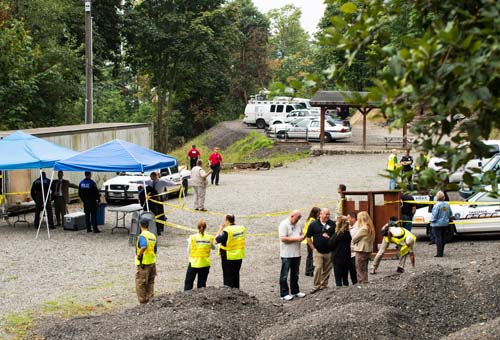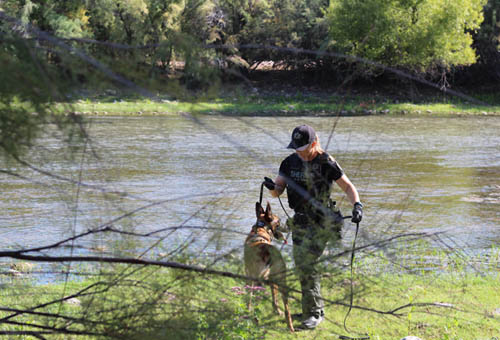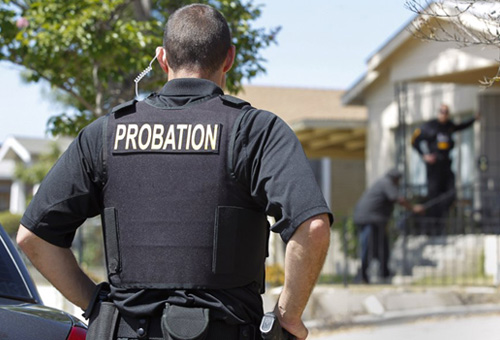


Take steps toward implementing a successful CART by bringing together a team of experts whose knowledge, skills, and abilities will be beneficial in a child abduction case. Join us to learn how to develop a multidisciplinary CART for responding to endangered, missing, or abducted children. Hear about the impact a child abduction has on the family and learn the fundamentals of developing an effective responsive CART team. Examine incident command considerations, search and canvassing operations, CART activation, and resources to improve the response, investigation, search, and canvass activities associated with missing children investigations.

Seconds count when a child is missing. Gain the critical skills needed to construct and manage effective search and canvass operations to recover the child. Recognize crucial cell phone and technology-related evidence which can help locate the child and track the abductor. Explore relevant legal issues associated with criminal cases against those who abduct and harm children. Participate in hands-on exercises designed to test your knowledge and application of the material and prepare you for your next missing child case.

In the complex landscape of the criminal justice system, working with individuals who have mental illness requires a nuanced understanding and specialized approach. As probation officers and case managers, your role extends beyond enforcement and monitoring; you are instrumental in facilitating rehabilitation and support. In this webinar, we delve into essential tools and strategies to effectively engage with individuals experiencing mental health challenges. We briefly explore the complexities of mental illness, offer examples, and equip probation officers with practical tools and skills to effectively engage and support individuals navigating these challenges.

Learn the best approach with children who are alleged victims of child abuse in the initial phases of a case, after a concern has been identified. Develop the basic skills and techniques necessary to engage a child in such a way as to minimize suggestibility but still provide support, beyond what is taught in a First Responder Training. Review best practices in identification of a concern and learn to engage these children in a way that maximizes positive case outcomes and minimizes potential behaviors that can hurt cases.

Technology plays a tremendous role in our children's lives. Learn about the ways children are interacting online to create better understanding and open up meaningful communication. Increase awareness of opportunities to protect and connect with children while also gathering valuable information to mitigate threats posed by individuals who seek to exploit them.

Child Sex Trafficking (CST) is a crime that is hidden yet in plain sight. First responders are often the first system members to make contact with a CST victim. A CST victim has been heavily groomed for system contact, is fearful of their trafficker, and often not forthcoming about their exploitive situation. Deconstruct the crime of CST and identify common scenarios in which you may come in contact with a CST victim. Discover victim-centered contact practices you can implement which are specific to CST victims. Recognize how to secure vital evidence which may only be available during your initial contact with the victim. Practice group exercises and develop contact and response plans to common scenarios you may encounter.

Join us for an intensive training focused on understanding and building relationships between the forensic pathologist, homicide investigator, and prosecutor in successfully investigating and prosecuting child homicide cases. Learn autopsy protocols, forensic essentials, and the criticality of determining the cause and manner of death. Understand the unique aspects of investigating a child homicide including interviewing and interrogation, suspect pool development and the role and importance of the prosecutor in gaining appropriate convictions.

Gather up-to-date information for the investigation and prosecution of all types of child abuse cases utilizing a multidisciplinary team (MDT) approach. Learn about medical evidence, interviewing child victims/witnesses and adult suspects/witnesses, along with legal issues involved in the investigation and prosecution of child physical and sexual abuse cases. Discuss trends in offenders’ use of technology, the use of child sexual abuse material (CSAM), and sextortion. Learn law enforcement investigative techniques that capitalize on new technology.

Explore the challenges involved with no body homicide investigations. Most start as missing persons cases; the suspect’s head start coupled with the absence of the victim’s body leaves gaping holes in the investigation. Join us to hear from experienced instructors as they provide the framework and tools to build a prosecutable circumstantial case—regardless of the age of the case—from proving the victim is dead using established practices such as victimology, interviews, documents/records/digital footprint to search strategies and best practices in documentation. This training will also provide established prosecution strategies that maximize the likelihood of success. During instruction, there will be an opportunity to share your case as a class participation case study exercise.

The Officer Safety Training offers probation officers with an opportunity to practice skills to effectively resolve disturbances that may arise in community supervision, home visits, search and seizure, and in the courtroom setting. During the 2.5 day training, officers will review the disturbance resolution model, a tool used to assess situations, as well as various communication techniques to de-escalate situations. Officers will also explore legal justifications for using force, situational desirability, and threat assessment opportunities. This is part of a 2-part, week long training for TPA and TPRA graduates, you may also want to register for the secondary training when register for your first one.
